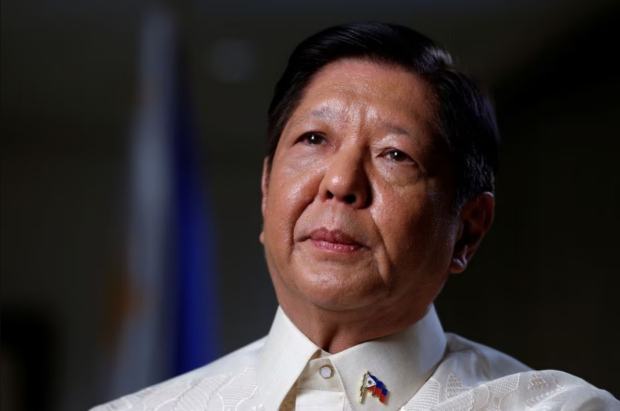
President Ferdinand Marcos Jr.(File photo from REUTERS)
MANILA, Philippines — President Ferdinand Marcos Jr. has added a private sector representative to the Public-Private Partnership Governing Board (PPPGB) to boost private sector participation in PPP projects, including big-ticket projects of the administration.
Under Executive Order (EO) No. 30 signed on June 1, the president said he wanted to strengthen the private sector’s participation in the PPP Center by appointing one representative from a reputable organization in the banking, business, and infrastructure sectors.
Marcos said the private sector representative should “promptly notify” the PPPGB of any actual, perceived, or potential conflict of interest, which could affect the performance of his or her duties as a member of the governing board.
The EO said the representative would take the place of the private sector co-chairperson under the National Competitive Council (NCC), who used to be one of the PPPGB members.
But the NCC was reorganized and became the Ease of Doing Business and Anti-Red Tape Advisory Council under Republic Act No. 11032 in 2018.
Under the new EO, the Socioeconomic Planning Secretary will serve as the PPPGB chair while the secretaries of finance, budget, justice, trade, and the executive secretary would serve as vice chairperson.
The EO said the chairperson and three other board members would constitute a quorum and a majority vote of the members present would be needed for the adoption of any issuance, order, resolution and decision.
194 high-impact projects
According to the EO, the PPPGB will be “responsible for setting the strategic direction of the PPP Program and creating an enabling policy and institutional environment for PPP.”
The National Economic and Development Authority (Neda) Board, which is chaired by the President, approved in March 194 high-impact priority projects worth P9 trillion as part of the government’s “Build Better More” program.
Socioeconomic Planning Secretary Arsenio Balisacan said 123 of the 194 infrastructure flagship projects (IFPs) were new, adding that the government would speed up their rollout by strongly promoting the use of the PPP scheme.
He said 45 of the IFPs are expected to be financed through partnerships with the private sector.
The PPP mode allows private financiers to finance government projects, such as hospitals, airports, tollways, and then allows them to collect fees from users during the duration of the contract.